"I had the ups and downs of Michelin, also the rays, I was too committed."
- Once, in the Inbox. “I recommend interviewing Félix Razkin, a former student of Eusebio Osa. He has just retired, he has a lot to tell about Basque cultural activity, the history of Basque Country, etc. He lives in Vitoria and is his phone number…”. What are you going to find?
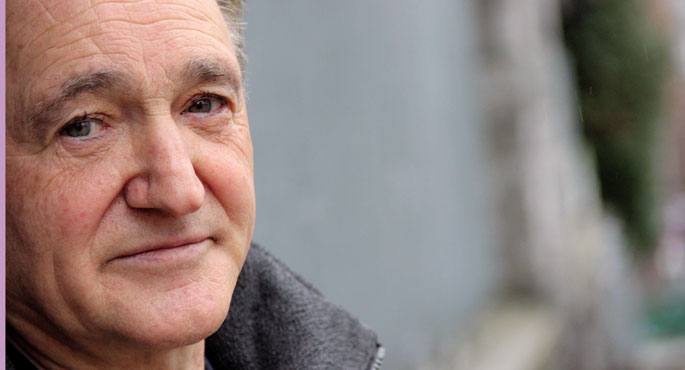
I was just retired, as I was told.
Yes, at age 65. No gifts!
In the central offices of Osakidetza, in the Basque Service, translator.
The Euskera plan was also elaborated by us, in the Euskera Service, and was designed, above all, by Roberto Manjón. In any case, what does the administration have about the Basque plan? Do translations, offer Basque courses for the employee to learn Basque, and that of linguistic profiles. That's it. The use of Euskera, for doctors to speak in Euskera with the sick… They don’t care.
We see the Basque in the papers, in an environment in which Spanish is spoken. You grew upside down in Arbizu.
We were in school and we didn't understand Spanish. The Spanish was alien to us. Half bad, the teacher was from there, from Arbizu. What we didn't understand explained to us in Basque! We learned by heart. And when I was 9 years old, I went to Oñati, to the friars, to study in Spanish, and I learned everything by heart, without understanding anything. I remember that, once the examination was carried out, we had two monks before us in court. Ask what you've learned and don't know how to start! I don't know how long I was quiet! “You will know this.” I had learned it, but I didn't know it. It occurred to one of them to start the answer, and I started to teach him a lesson, to respond impatiently. We did not understand anything to learn from memory!
Born in Arbizu in 1947, he entered the College of the Lateranese Augustinians of Oñati for nine years.
The convent was founded by Pius Mortara. He was a wealthy Jew, but the woman who cared for him was Catholic and baptized him in secret. There's history. He was ordained a priest and founded, among other things, the convent of Oñati. There I was. At that time, the monks worked from school to school, recruiting themes, spreading. I had an uncle in Oñati, a priest, and when I knew I was coming to Arbizu's school, it was nothing to me. I didn't want to go to the friars. But finally, father and mother came to join my uncle and sent me to test him for fifteen days in summer, in August. And wonderful! Every day in football, playing in the river, reading for a while… Here’s a big difference! Taking care of the cows at home, whenever it is not at work in another”, I said. “Yes, yes, I’ll go to Oñati!” I told my parents.
There was work at home.
Yes, yes. We were on the street, but the house is a farmhouse in Arbizu, not like in Gipuzkoa, on one street, on the other a farmhouse. Our mother’s house was that of the Count – my father said it was a small name, playing – my father’s house was that of Argiña. He was the firstborn, and neither the mother nor the father were the first to send, so they had to leave the house. As a barber father, our house was Juan Barbero, and even more so, Juanita Barbero.
Barber father.
Not only the barber, but he worked a lot: he ruled the cattle, he cultivated the fields, he worked in the Olatz factory of the town, on the railroad… A thousand trades! He was also porcine and murderous. It commonly means "arbizu," "devouring" or "castrator." In the house we were four brothers, two sisters who preceded me, I was the third and my younger brother the last.
The third is you, and the monks.
My uncle was always there, and I was a naughty! It took me a hard job. In Arbizu, the priest was very Basque, a very pure nationalist, he did not give in. The Mass would be said in Latin, but Juan Goikoetxea spoke the sermons, the rosaries and all that in Basque. He was also in prison, where he was charged by the doctors and secretaries of the Albacete prison. However, the cure continued. In Oñati, the classes were in Spanish, rezos and all in Spanish. There were also friars who spoke in Basque with us, but we lived in Spanish. From that point on, some suffered considerable trauma as they did not respond to the efforts of their parents.
Atmosphere, the magazine in Basque came out in your convent.
I was born the awareness of the Basque in Oñati. There were Eusebio Osa, Patxi Lasa, Pablo Anduaga and others. There was a clump. At that time, culture was in the convent. We also publish two journals: UnionTxokoa and Erein. I wrote in both, pushed by Osa and by others. Now it is said “extracurricular activities”, for thus we are literate in Basque. Eusebio Osa was very avid, of course, participated in the Euskaltzaindia Assembly of Arantzazu in 1968, with which we learned a lot.
So it was not just religion.
The Vatican II.aren was the next time, the time when the Church began to open, and there came Eusebio Osa, a smart, open, progressive and advanced man for that time. Of course, that also brought him criticism. When in Oñati, we, the young Friars decided to send him to Vitoria – the goal was for us to study Theology, although by then we had left enough of us the way to be friars – some responsible friars were named, coming with us to Vitoria, to put us on a floor and look at us. Designated, Eusebio Osa. 1968-69, as May Paris was there. Eusebio did a great job with us. He immediately saw that we had no intention of monk, but he did not force us to anything: “Everyone has to make their way,” and he helped us.
What was your way?
I was fascinated by the world of the workers, and we went to the factories, despite being friars, three or four of them. Most, however, resorted to teaching. Others moved to Bilbao: The one who was Kepa Periko Mallea, Tasio Erkizia… It was the time of the workers’ priests, and Eusebio Osa himself pioneered it. He worked in an office [it was the company Sanchiz Bueno], in the ikastola Olabide… He was also expelled. I have already said that, it had been advanced by that time. When we came from Oñati to the apartment of Vitoria, we had a large dining room and there we did masses. Bread and wine too, we had daily bread and wine! What a discovery! Eusebio saw so clearly the way forward. He also encouraged us to teach Euskera classes.
Studying theology, working in the workshop, teaching Basque…
We were studying theology, not intending to be a priest, but because we needed some degree. I started working at Tximist, because I think we knew about Oñati. In Vitoria-Gasteiz there were many Euskaldunes. Tximist came from Oñati, with a lot of workers. BH, from Eibar. Enamels San Ignacio, Gabilondo… here they were. Eusebio began to say that Mass was needed in Basque, and we went to find a place.
What did they say in the Convent of Oñati?
We had been completely rejected. And tell us against us. Eusebio was taken as traitor, they said that we beat him. But actually, he saw the way, not us. We were learning and working, teaching Euskera. I, for example, spent them in a Bar Paco, on Becerro Bengoa Street. Through your son. It was Tito, from ETA, who had escaped from Basauri prison, where he was inmate. He left us the site. The curator was in the bar. The police knew very well what we were doing. We were going to eat! There was no money to pay for the Txikitos, and every day in the bar on the excuse of having dinner. We relate to a lot of people. Mario Onandia also came to us…
Mario Onandia?
Yeah, seeing what we were doing, they wanted people to move to them.
However, you were not from ETA.
No. Later, someone got involved in it, but at that time there was no ETA among us. We were doing our job. I taught at Bar Pacon and on Dato Street, in the mountain society Manuel Iradier. Another place, in the Club Jabatos, on Calle Nieves Cano. We moved here and there, working. Pako Eizagirre, Rafa Etxegarai, myself… We were five or six people teaching Euskera: “You, and what do we have to teach?” “How to make greetings, for example.” I mean, communication. Teach people to make phrases, and this and that. Since then, many attempts have been made in this direction.
You had dislikes...
Yes, especially after the ambush of Araotz. I think it was in 1969, in Legutio, that they put the bomb on the monument to the dead in war. The sister of Jon Oñatibia, who was a nun, was also arrested. We were in the barnetegi of Araotz, in the house left by Ander Iriondo, parish priest of Araotz, a boy and a girl. We had the second summer course. Among the students there were ETA students, in the dining room there was always a pamphlet. The one in Legutiano happened, and the civil guard came. It's possible that in the neighborhood some native would report to us, but not because we were from ETA, or we could be, but because we were there, living together, boys and girls. Police, on the eve of the end of the course of fifteen days. Arrests. Some were taken to San Sebastian (Eusebio, Pako Eizagirre…), others (I, among them) had me in Vitoria at the police house of La Paz Street.
To San Sebastian some, to Vitoria others?
Those who were surprised in Araotz, to Donostia-San Sebastián. Those of us who weren't there, Vitoria. I, for example, had gone home to pick up my work clothes. They took me, put me in the house of Vitoria and opened me inside. Araoz's was worse, they woke up our friends with crutches on their heads.
Araotz brought the last one he had.
Yes, it caused us to disperse. Everyone followed his path. Eusebio also secularized. I finished Theology, then I did military service and when I returned from there the situation was another one in Vitoria. We kept in touch, but each one had his life, many times with his girlfriend.
You went back to work, at the factory.
At Michelín, then. There I also had my circumstances and had to leave. I was too committed. Same as lightning. Always in favor of the workers, participating a lot in the assemblies… I was told to leave and leave. Flushes. At Michelín, same, in 1972. I started at BH, I studied Basque Philology at the age of 38... I worked eight hours and studied.
Why study, which had the title of Theology?
I saw there was no future in BH. At the time when we were about 500 workers, I saw that many of the products were brought from China. "There's plenty of people here! I started to tell myself. Then I decided to study Philology… Then I also had problems at the factory: I asked for a shift tomorrow – without changing the shift – to be able to go to college in the afternoon. The BH foreman says no, he had to work in the morning and in the afternoon, depending on the shift. I made a complaint in court and in the conciliation act prior to the trial, I was granted the right. So I was able to learn Basque Philology. I invented it by the neck, because they finished their studies and they started firing people at the factory, at BH, and among other things me. By then I was already registered for competitions to be a professor, also in Osakidetza’s lists… I was unemployed for half a year – which I took advantage of for computer courses – I also called the translators, and there they received me for a year, I also worked in the private company – among them, translator – I also worked with another colleague, Xabier Armendariz, a translation worker, in Osakiki. He said to them, “If it’s less than six months, don’t call you, because I have work.” It was for half a year. I told Xabier: “Do you let me do the experience?” “but come back, eh.” I did not return, I retired in Osakidetza last November. Like that.
(Arbizu, 1947) fraide bidean jarri zuten etxean, 9 urte zituela Oñatira bidalirik. Agustindar laterandarretan ikasi zuen, eta Gasteizen zen 1968an, Teologia ikasketak burura eramateko asmotan, Eusebio Osa zenaren gidaritzapean. Apaiz langileen sasoia zen, eta Teologia ikasketak egin bitartean, fabrika lanean jardun zuen. 70eko hamarkadaren hasieran utzi zuen erabat fraidetza. Tximist, Michelin eta BHn egin zuen lan. Martxoaren 3a barru-barrutik bizi izan zuen. Bizikleta fabrikaren etorkizun motzari igarri eta Euskal Filologia ikasketak burutu zituen Gasteizen (1986-1991), lanean eta ikasten. Ondotik, Osakidetzako bulego nagusietan Erakunde Zentralean jardun du lanean Gasteizen, Euskara Zerbitzuan itzultzaile. 1979an ezkondu zen, bi seme-alabaren aita da.
Arbizu: Umeak ginela, gaur UPNkoa izan zitekeen jendea bazen, baina haien maxima zen, “euskaraz, e!”. Garai hartan!
Principe de Viana: Erakundeak saria ematen zien euskaraz egiten zuten herriei. Euskaraz esanarazi ziguten dotrina. 7 urte nituen. Saria jaso genuen. Aurrezki libreta zabaldu ziguten, 150na pezetarekin, eta diploma eman ziguten. Gordeta daukat oraindik.
Oñati: Bizipen gazi-gozoa. Lanerako diziplina, batetik; zigorrak, bestetik. Libertaterik ez.
Gasteiz: Ilusio handiz etorri nintzen, Oñatiko giro itxitik irtenda. Hemen ezagutu nuen langile giroa.
Gasteizko fraidegaien komunitatea: Horixe, komunitatea. Gauak luze ziren, kontu kontari.
Fraidetza uztea: Gurasoei nola esan, horixe kezka. Esan, eta haien disgustua!
Lehen lana: Garoña inguruko urtegian jardun nuen, gauez. Zer zen hura! Erdi lotan! Hantxe ezagutu nuen errealitatea, baina egun gutxi egin nuen han.
Tximist: Burgosko prozesu garaian, Juanito Zelaiak berak –edo lantegiko arduradunak– agindu zigun lanari utzi eta kalera irteteko, protestan. Lan-hitzarmena sinatu behar zenean, berriz, eskuzabaltasunik ez zen.
BH: Michelinetik bota ninduten eta aste bat garreneko lana nuen BHn.
Martxoak 3: Sekulako borroka eta mugimendua. Baina laster ziren sindikatuak protagonismoa bereganatu nahian, eta desengainatu nintzen.
Euskal Filologia: Langile munduan ez nuen etorkizunik ikusten.
Osakidetza: Oso jende ona. Jubilatu aurreko despedidan zerbitzu zentraleko 200 lagun bildu ginen.
A few weeks ago, the President of the European Union, Ursula von der Leyen, reported on the need for military spending of eight hundred billion euros. This expenditure is said to be in response to a military threat to which Europe is exposed, and it has been confirmed that there... [+]
Euskadi markak, eraikuntza sektoreko ekonomiaren estrategian, “industrializazioa” mantrarako hitz gisa hartu duela jakinarazi berri du Eusko Jaurlaritzak. Etxebizitza publikoaren eraikuntzan industrializaturiko prozesu eta elementuak lan guztien %65a izatea... [+]
As we explained in our book on adaptation, in view of the decline in European military spending since the late 1980s of the last century, at the beginning of the 21st century European death traders decided to organize themselves and structured themselves as lobbies imitating the... [+]
In recent weeks and months, all kinds of political, economic and business organizations have been constantly raising the sounds of war. But what if the purpose of this buzzing noise was not to allow us to think clearly and the fear was to confuse our analysis? Let’s try to... [+]
At the beginning of the year, the Zedarria group publicly supported the "opening of the debate" on the "defense" industry (as well as the nuclear industry), to which the Basque Government has immediately joined. First, through Mikel Torres, Vice President and Economic Counselor, who... [+]
Ukrainaren ondoren Polonia?
Europar Batasunak Ukrainako gerra hauspotu du Kiev armaz hornituta, eta menia oraindik airean delarik, gerraren zikloan murgilduta dago bete-betean. Hori bai, bere diskurtsoa modulatzen ari da, eta gero eta gehiago hitz egiten du balizko su-etenaz... [+]









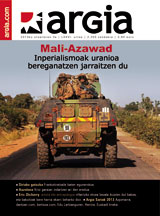



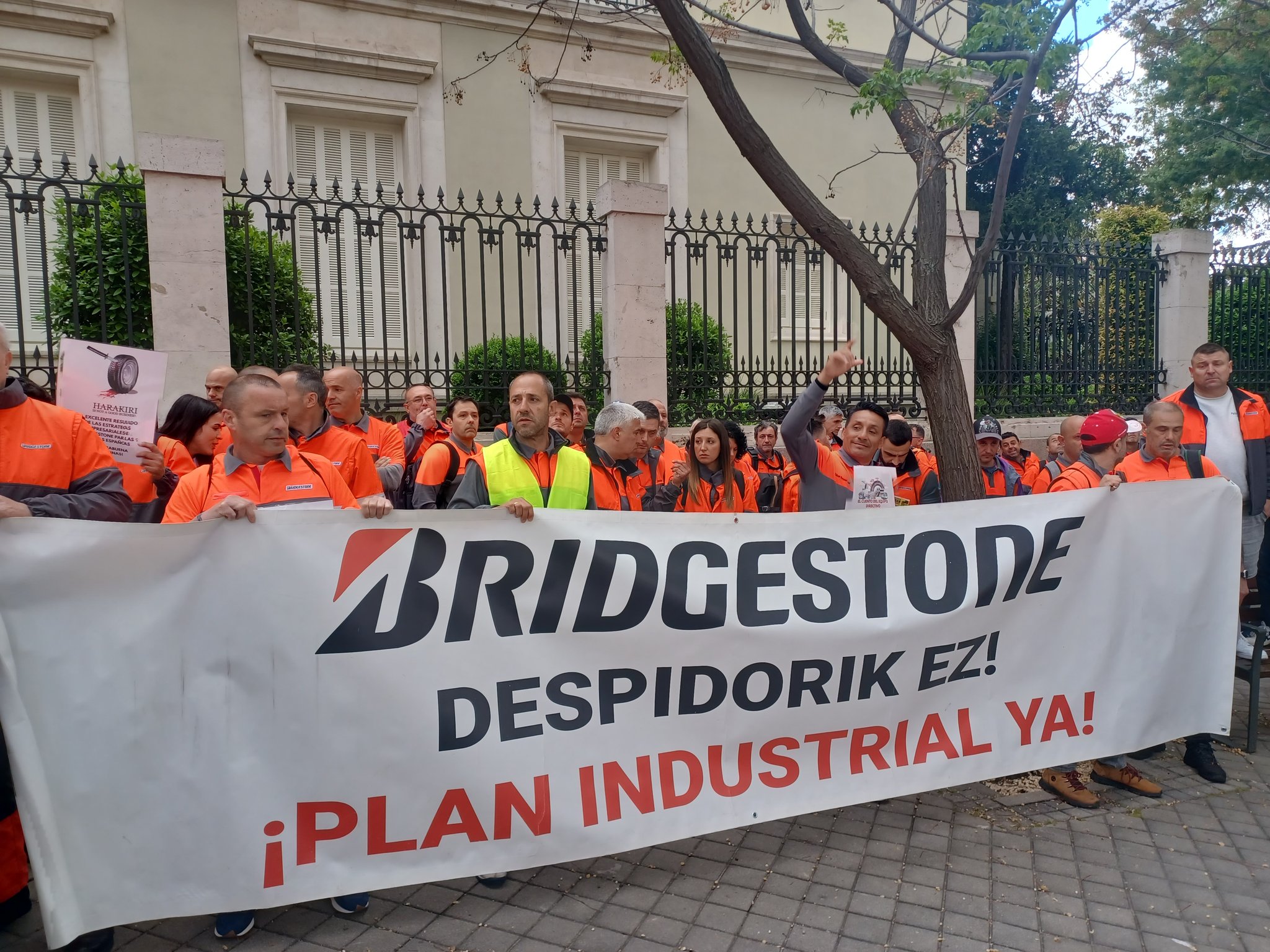


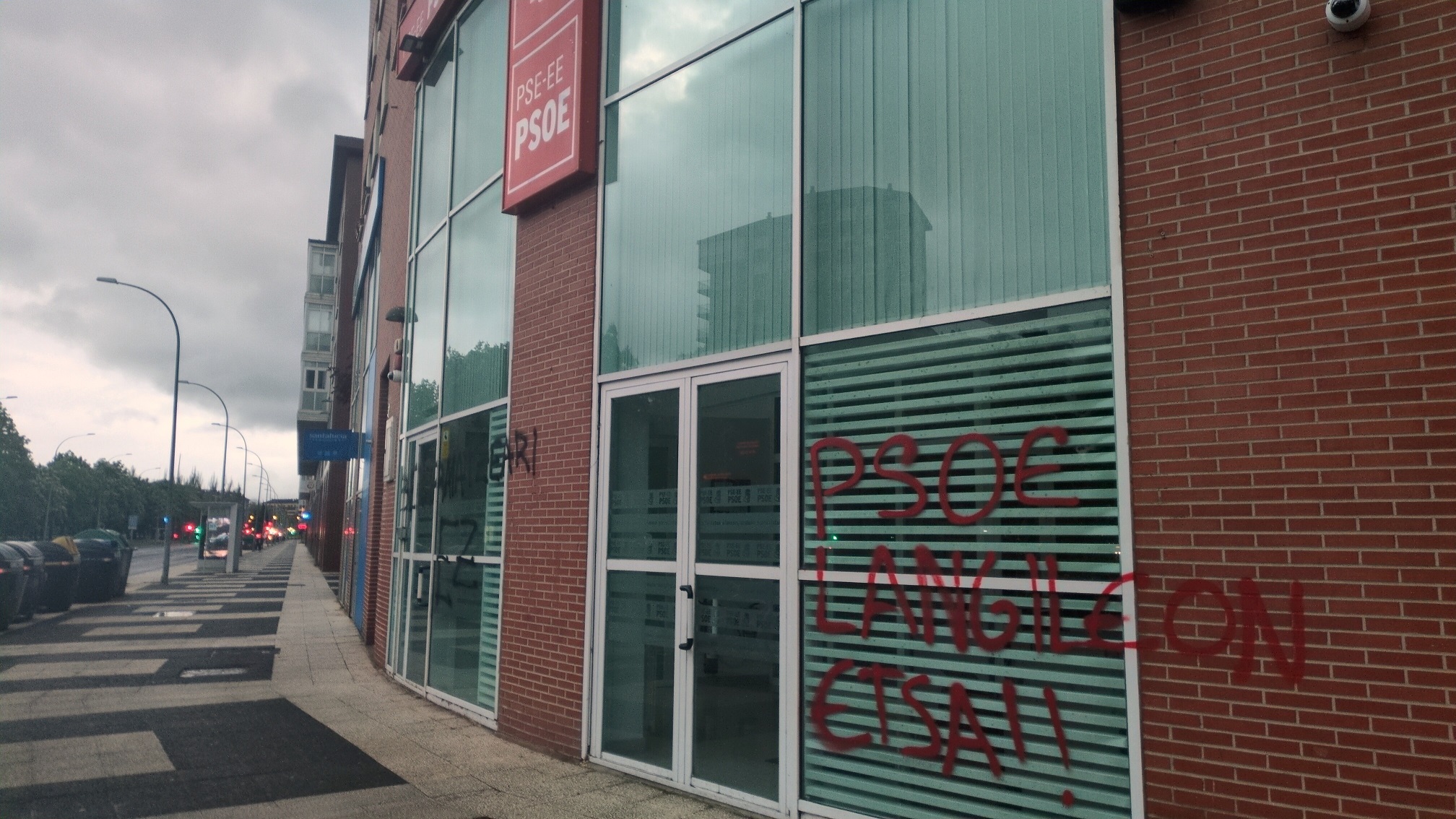



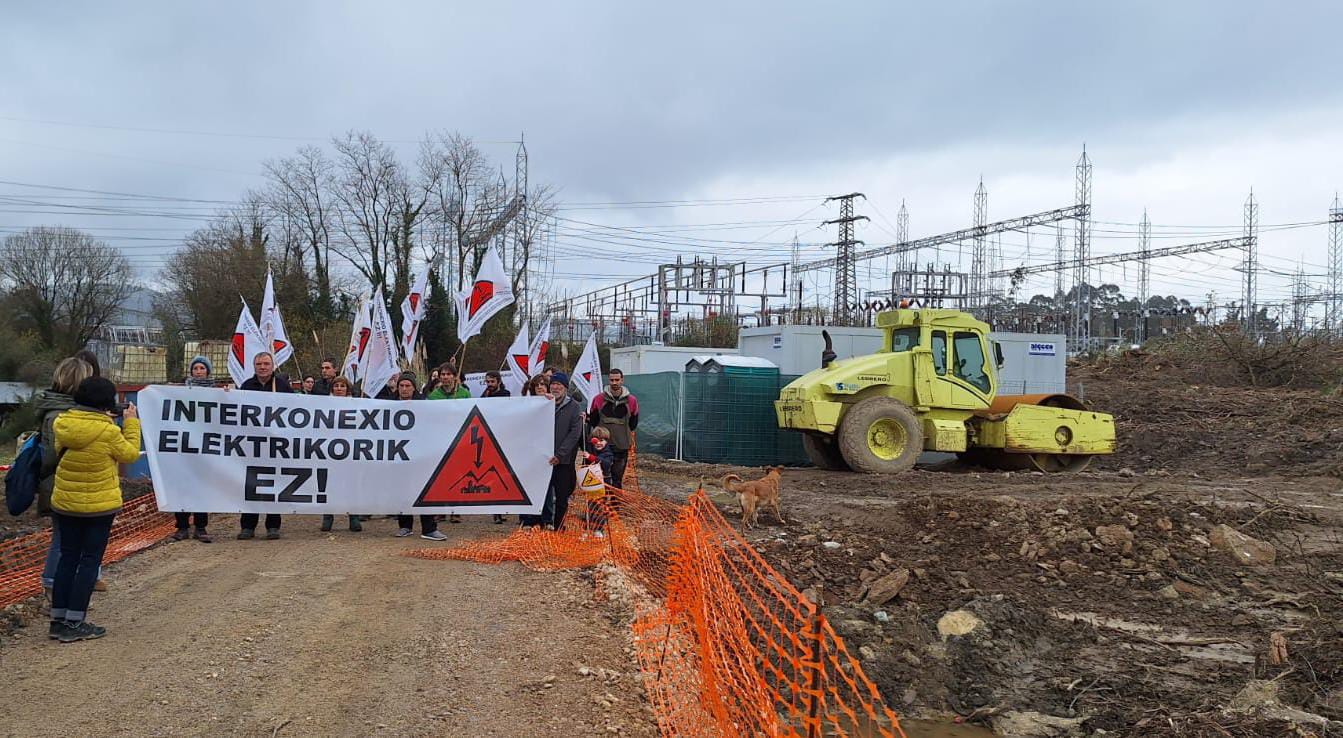



.jpg)